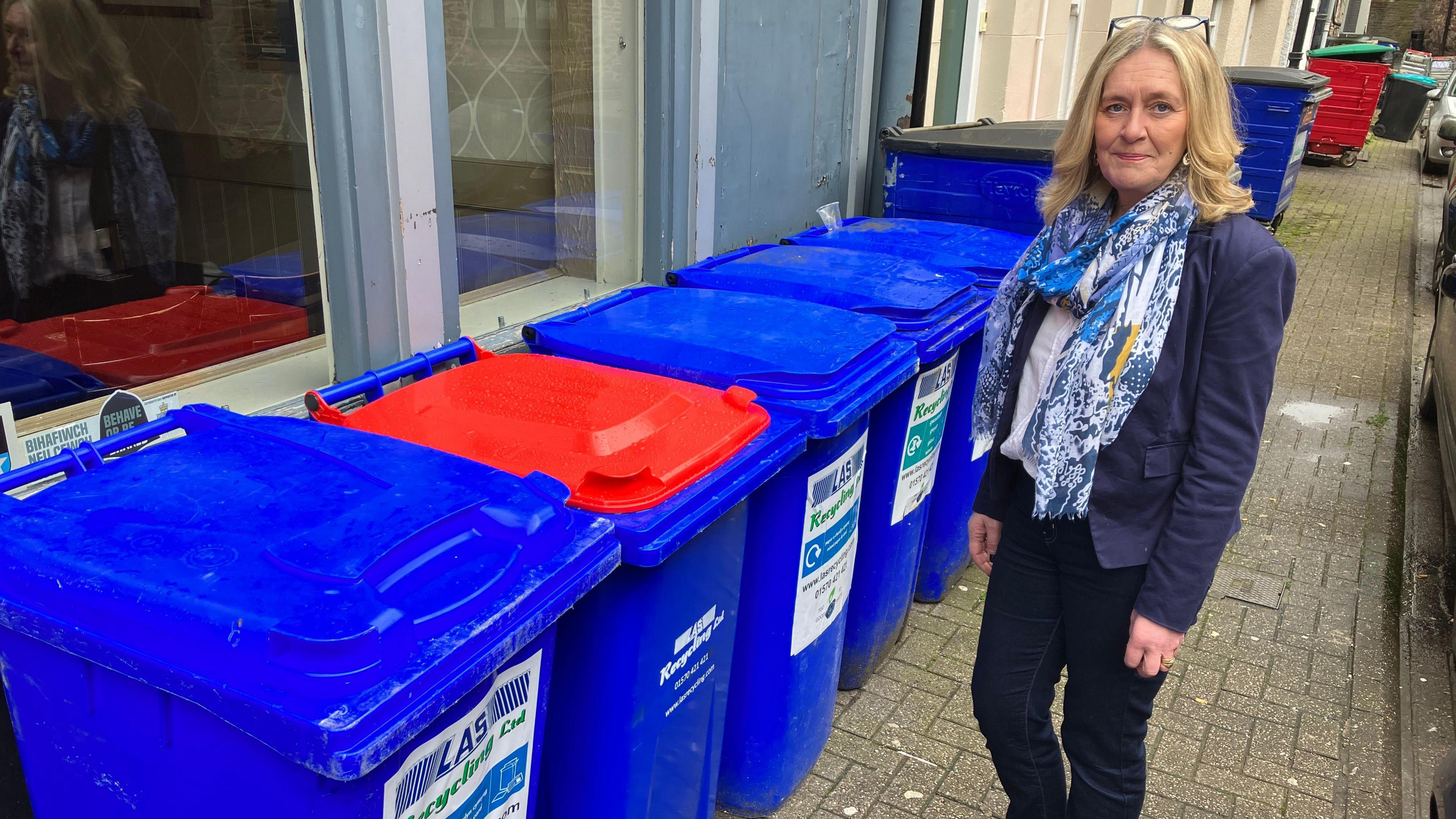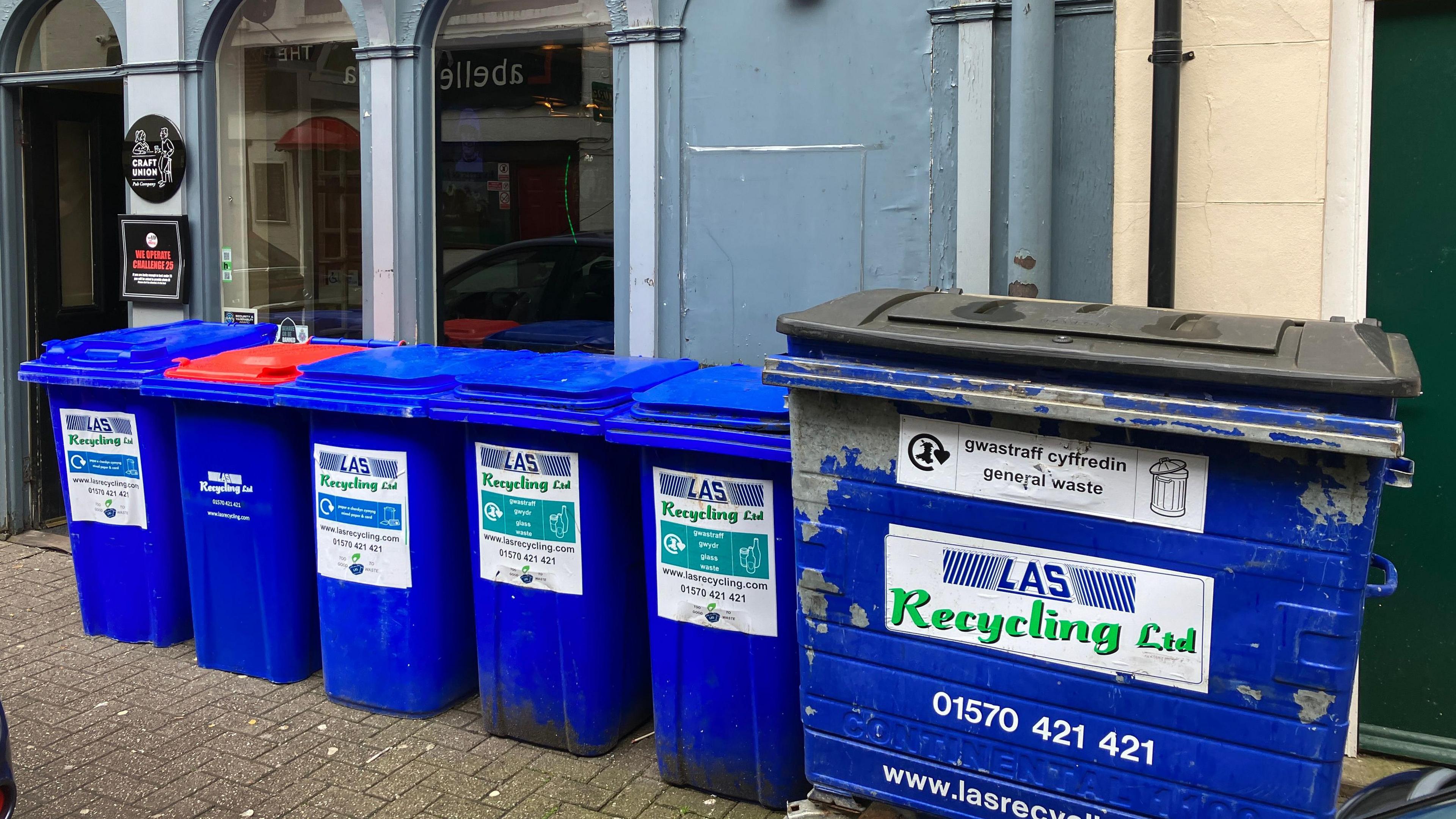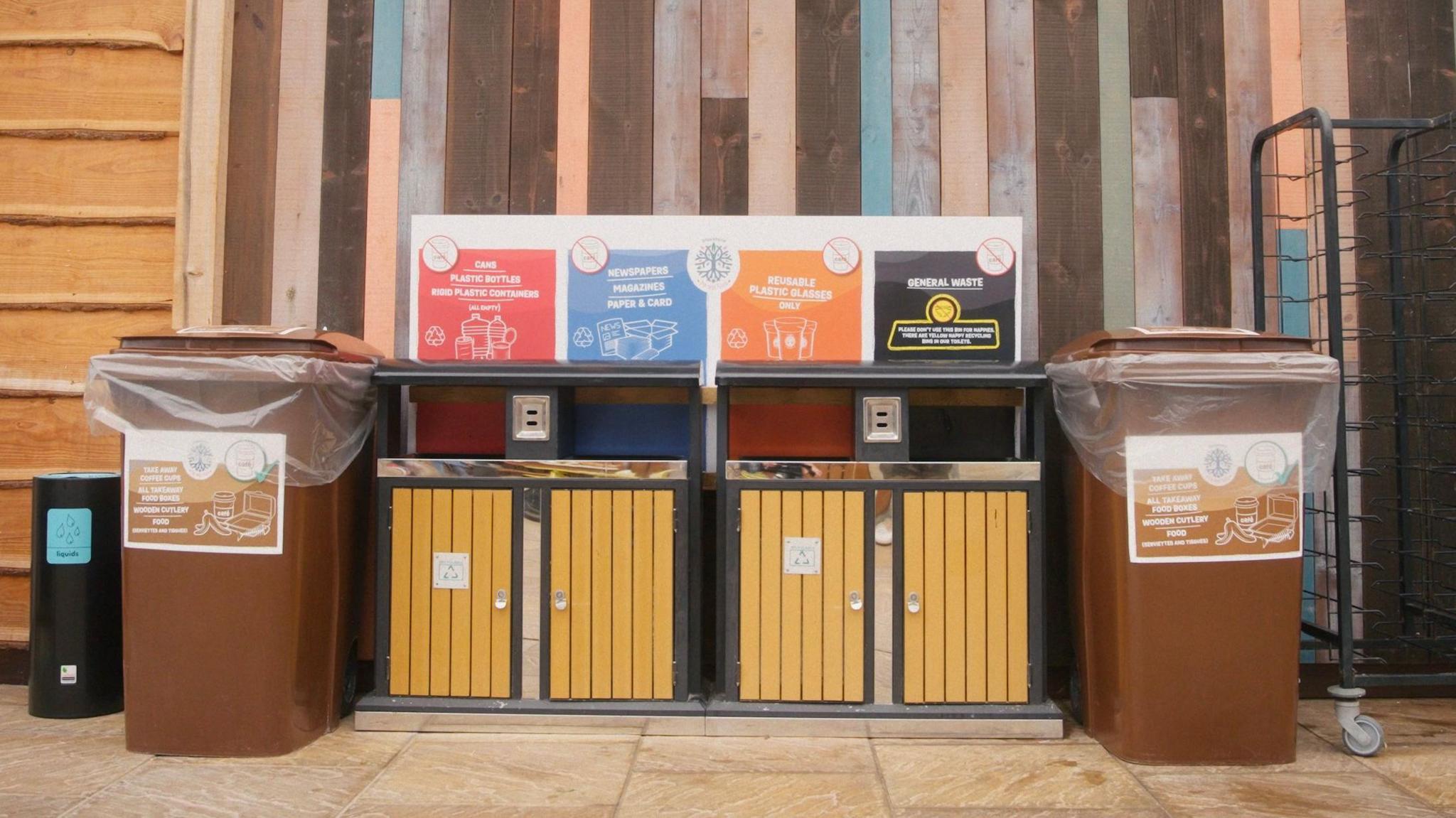Businesses braced for new recycling law challenges

Clare Dent is worried about recycling bins taking up space inside and outside shops on Brecon's high street
- Published
Cost, space and contamination are some of the worries facing business owners as a new workplace recycling law comes into force across Wales.
From Saturday, all businesses, public sector organisations and charities will be legally required to separate their waste ready for collection.
The Welsh government said the majority of businesses supported the new law and its response for non-compliance would be fair and proportionate.
Figures suggest 75% of business waste is recyclable - but it believed too much still ends up being sent to landfill, incineration plants or abroad.
The move forms part of plans to achieve net zero waste, external and reduced emissions by 2050.
Three-week or monthly bin days loom for most areas
- Published16 February 2024
Wales remains top UK recycler for over 10 years
- Published11 May 2022
"Businesses are fully behind the principle of recycling our waste," said Clare Dent, who runs a gallery and cafe in Brecon, Powys.
"However, our concerns are around a lack of support and communication on the ground.
"There are also going to be access issues with so many bins on the street, aesthetically it doesn't look good."
Under the new workplace recycling rules, businesses will be responsible for separating waste into six separate streams.
Metals, cartons and plastics must be disposed of in one bin, paper and cardboard must be put into another, glass will be collected alone as will all food waste.
Unsold textiles and any small electrical items should also be placed into individual bins.
Ms Dent believes not enough consideration has been given to the practical implications of the new rules.

The new workplace recycling law is part of the Welsh government's commitment to reaching net zero waste
Ms Dent added: "Separating waste also means an additional time and cost implication for us.
"These new bins are also not lockable so someone could come along and throw any old waste in there, like a kebab, and I could be fined if Natural Resources Wales comes along and sees it's been contaminated."
There will also be a ban on businesses putting food waste into sewers and a ban on separately collected waste going to landfill or incineration plants.
Natural Resources Wales will ensure all sectors comply with the rules, while local authorities will oversee the ban on sending food waste to sewers.
Hospitals will not have to comply with the rule changes for another two years.
There could be unlimited fines or court orders for businesses found to be breaking the law.
However, the Welsh government insisted the response for non-compliance would be fair.

Some businesses have already implemented changes to comply with the new workplace recycling law
Around two thirds of small and medium-sized businesses which responded to a Welsh government survey last year said they already recycled everything they could and almost 80% supported the law change.
Bluestone holiday park in Pembrokeshire and Cardiff University were among a small number of places where waste is already being separated in line with the imminent law change.
Director of Sustainability at Bluestone Marten Lewis said: "Since installing new bins across our site for the separation of our recyclable waste, we have noticed that there is a lot less cross-contamination.
"The right items are ending up in the right bins, meaning that the quality of the waste we are sending for recycling has improved by more than half."
Ben Cottam, head of the Federation of Small Businesses in Wales, said: "I think this is going to be one of those situations where we only fully understand the practical challenges [of the law] after it comes into force.
"Our message to government and the regulators is that we need a slow run in on this and as much effort needs to go into advice and support as it does with enforcement."
Cabinet Secretary for Climate Change, Huw Irranca-Davies said: “Wales is already the best in the UK for domestic recycling and third best in the world.
“We now want to improve the quality and quantity of recycling from workplaces. This is an important step towards reaching zero waste, reducing our carbon emissions and tackling the climate emergency.
“We want to keep materials in use for as long as possible. With the costs of materials rising, keeping high quality materials in use will help our economy and support our supply chains."